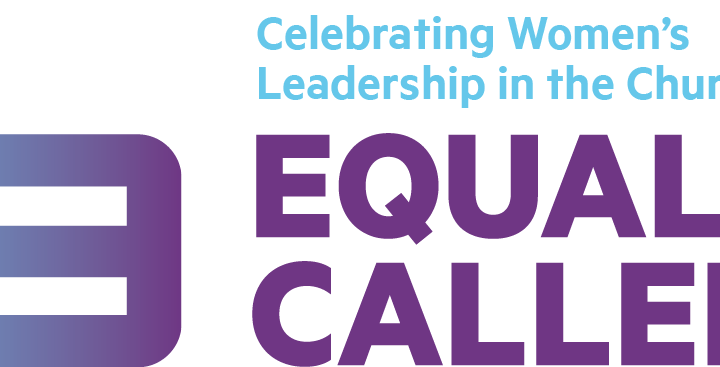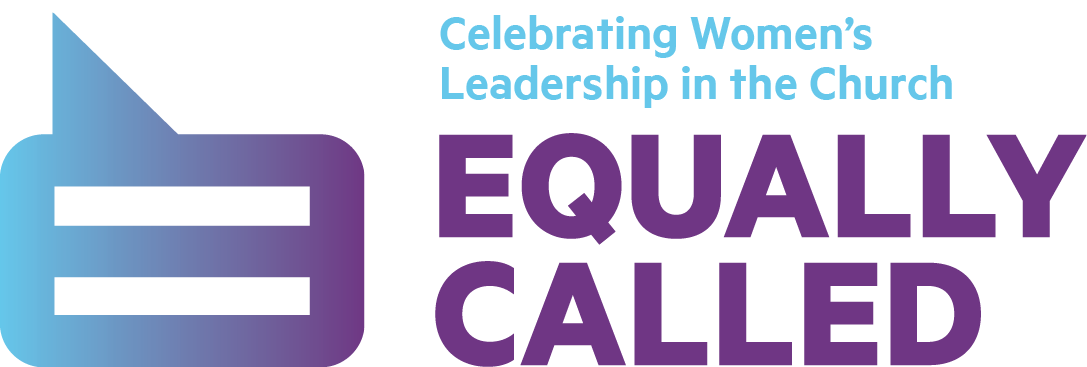Baptist Women in Ministry and the Cooperative Baptist Fellowship have unveiled a new curriculum to provide congregations with a biblical foundation for embracing and celebrating women in church leadership.
The reveal came during the July 29 plenary session at CBF’s General Assembly in Atlanta, where Baptists were challenged to examine if or how their congregations’ practices line up with claims of support for women in ministry.
“Though many Baptists profess support of women in ministry, though they say they believe there should be no barriers or limitations placed on the ways women can lead and minister, the lived experience of women in those places often does not match the stated belief,” BWIM Executive Director Meredith Stone said.
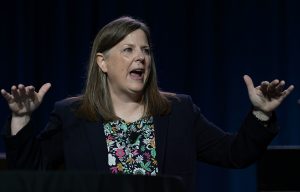
Meredith Stone
Stone joined Brian Foreman, CBF coordinator of congregational ministries, in unveiling Equally Called, a four-part video and curriculum series that blends scriptural study with the experiences of current women in ministry to guide congregations through a process of discernment.
The curriculum was inspired by BWIM’s 2022 “State of Women in Baptist Life Report,” which found Baptist women in ministry continue to feel blocked, slighted and ignored in their callings because they are women — even in churches that profess an openness to their leadership.
The report showed 86% of female ministers surveyed “feel obstacles due to gender” while 59% “said they are overlooked and silenced in their ministry settings” and another 63% reported feeling they “have to fight for a seat at the table” in their ministry settings.
“While last summer’s report provided some reasons for celebration, the metrics for progress were slim,” Stone said. “The report revealed that women continue to have far less opportunities to express their God-given callings in Baptist ministry than men do. In the Cooperative Baptist Fellowship, there were even fewer women serving as senior pastors or co-pastors in 2021 than there were in 2015. And for women who do find opportunities, they often experience discrimination, and even harassment, as they minister and lead.”
“We have to acknowledge that the table itself was built so that women wouldn’t fit.”
The core challenge is that many churches were established on patriarchal footings that continue to influence attitudes about female ministers and leaders even when congregations profess support for their leadership, Stone said. “With good intentions, we’ve tried to make a little bit of space for women at the table as it has always existed. But we have to acknowledge that the table itself was built so that women wouldn’t fit. More than just pulling out a few new chairs, or even some men giving up their chairs so women might fill them, we need to think about what a new table looks like.”
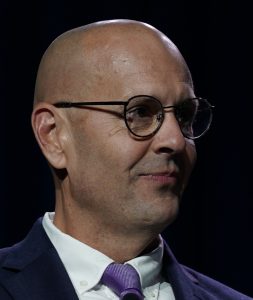
Brian Foreman
Equally Called is the process for envisioning those new tables, she said. “We need to think about how we might transform our congregations into places where women in ministry can thrive, where women and men share in every aspect of participating in God’s work in this world. … In doing so, our hope is that people in CBF congregations, in your congregations, may consider how women’s experiences are contradictory to the picture of shared ministry the Bible portrays, and at the same examine how your congregations might grow into environments of increased empowerment for women in ministry.”
General Assembly attendees were exposed to an abbreviated form of the curriculum, including brief video clips covering Scripture and the experiences of individual female pastors. Table discussions followed each presentation.
“If any of this feels uncomfortable for you, that’s OK,” Foreman said. “I invite you to lean into a posture of curiosity, seeking understanding of the perspectives expressed at your table. The conversation will follow the rhythm of the Equally Called curriculum. It’s a sampling of how you can have these conversations in your congregation. But maybe more importantly, today is an opportunity for us all to lean into how we better empower women to fully live out their God-given callings.”
Jennifer Bashaw, assistant professor of Christian studies at Campbell University, offered a video lesson on the mutuality of women and men presented in Genesis. Unity, not hierarchy, results from the creation of women and men in the image of God, she said.
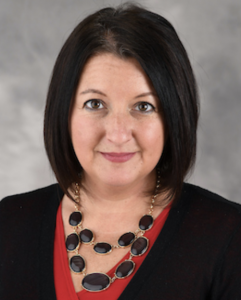
Jennifer Bashaw
But that blueprint is undercut by patriarchal structures that subsequently arose to shape centuries of interpretation of Scripture, she explained. “They teach that God has placed men in leadership roles over women and that women’s participation in the ministry of the church should be limited. In our exploration of the Genesis stories, we will show that hierarchy and the limitation, or domination, of women is not God’s intent for humanity. Instead, this patriarchal structure is a result of the disordering of creation.”
The curriculum’s creators hope participants will be challenged to examine how patriarchal assumptions are operative in their own churches, Bashaw said. ‘We want to inspire you to move forward in your interpretation of Scripture, your theological convictions and your church practices so that together we can abandon the corrupted hierarchical view of humanity and instead embody God’s ideal for humanity mutuality and equality in church leadership and beyond.”
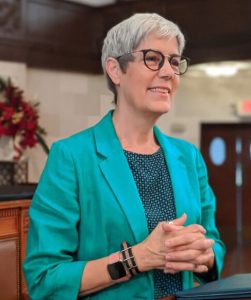
Mimi Walker
In her video, Mimi Walker, senior pastor of the Church at Ponce and Highland in Atlanta, cites a passage from Acts in which Peter quotes the prophet Joel’s declaration that, in the last days, God will pour out God’s spirit on all people and male and female will prophesy.
Leadership at Ponce and Highland follows that model, she said. “Our staff models mutuality and leadership. I’m the senior pastor, and to me that means I lead by empowering everyone on the staff to see each other as equal members of this team. We have different skills and different responsibilities, but we’re all in this together with the same purpose now.”

